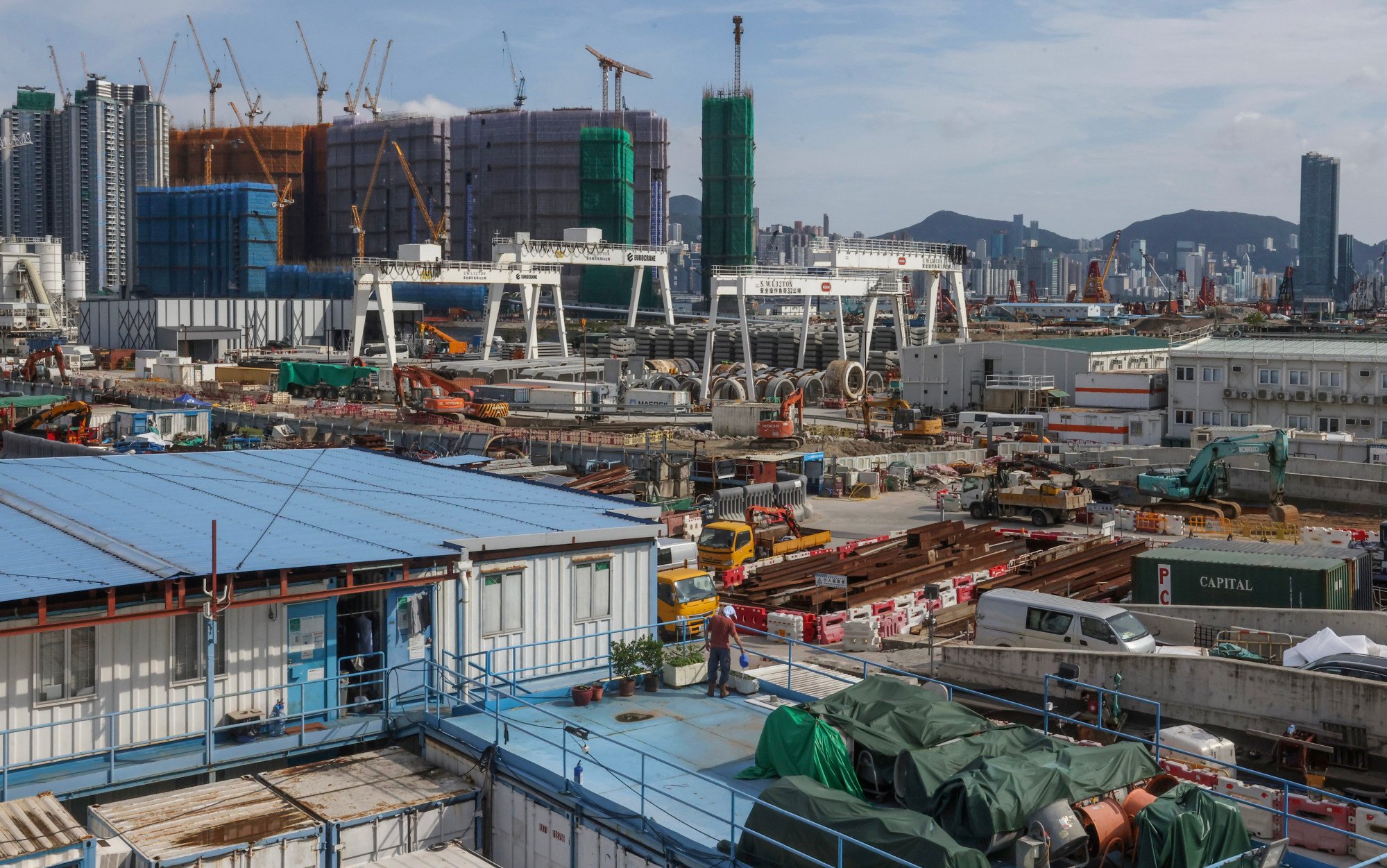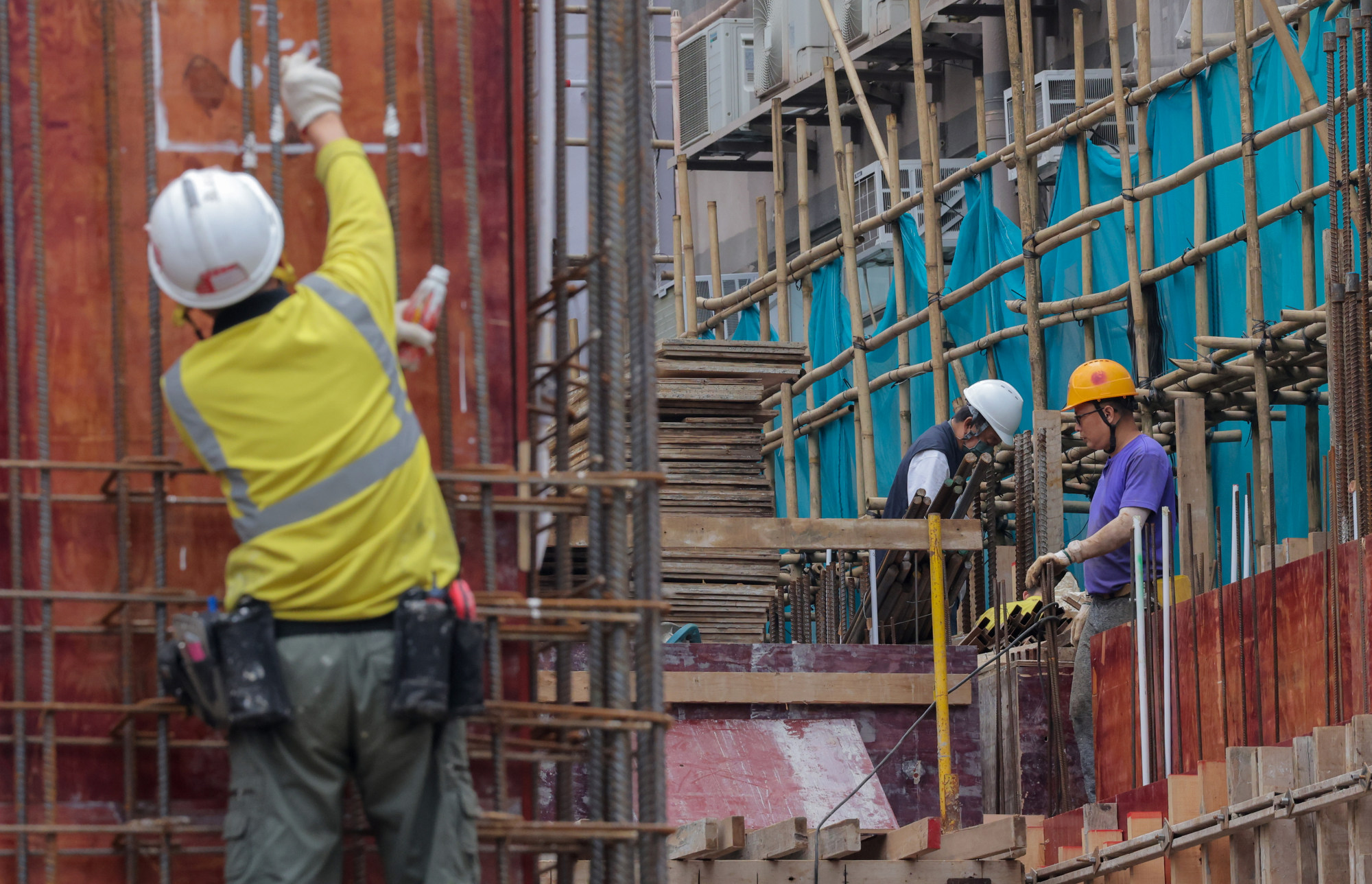New technology tracks location, body temperature, heart rate and blood pressure of workers on construction sites. But trade union leader Wong Ping advises authorities to make use of new technology voluntary, as workers may not want health information tracked. — SCMP
Hong Kong’s second-largest public housing provider is planning to introduce a digitised tracking system including smart helmets and wristbands that monitor workers’ health at construction sites in a bid to improve safety.
The measures follow a series of fatal industrial accidents in the city this month. The Smart Site Safety System (4S) was likely to be adopted at 16 public housing projects under construction after a trial run at a Kai Tak development site, the Housing Society told the Post.
“Besides finishing the housing projects on time, we pay rigorous attention to construction quality and safety,” said Franki Yeung Kai-yu, director of projects at the society.

The trial is under way, and the society said it planned to extend the system to other housing developments, such as one on Anderson Road near Sau Mau Ping, by the end of the year.
The technology provides real-time information about conditions on construction sites, which is then analysed by a control room to determine whether action should be taken to better protect workers.
“Through the system, we are able to track how many workers are currently on the site, and who isn’t wearing personal protective equipment,” Yeung said.
Construction staff, especially those working in high-risk areas such as lift shafts, are required as part of the trial to wear smart helmets and wristbands which track their location, body temperature, heart rate and blood pressure.
“Those who suffer from heatstroke or other conditions could be identified and immediate medical assistance could be provided,” Yeung said.
He added such tools could also help ensure an accurate headcount at some large-scale basement excavation sites.
The system can also alert the control room if workers get dangerously close to heavy machinery, such as forklifts, by using sensors attached to helmets and the equipment.

The sensors, which use radiofrequency identification to track objects, also include workers’ training backgrounds and related certifications. The society said incorporating the information would prevent unauthorised personnel from accessing hazardous areas such as confined spaces.
The society said it had added extra terms to new contracts from the beginning of the year to require contractors to adopt a series of safety measures, including the new technology.
In an effort to prevent bidders from prioritising competition over safety, the society said it would pay for the cost of the new system, which amounts to between 0.3% and 0.5% of total project expenditure.
For large-scale projects which cost more than HK$2.5bil (RM1.48bil), the society has allocated about HK$8mil (RM4.74mil) to HK$9mil (RM5.33mil), while HK$4mil (RM2.37mil) to HK$5mil (RM2.96mil) was earmarked for smaller sites.
“We believe that safety is priceless ... It’s worth it for us to pay for the smart system,” Yeung said.
Builders are required to provide virtual reality safety training to workers to raise their awareness of potential dangers on construction sites under the new contract terms.
“Through the virtual training, workers can get first-hand experience on how to operate a crane,” Yeung said.
Wong Ping, the chairman of the Hong Kong Construction Industry Employees General Union, welcomed the use of technology to improve worker safety.
“By equipping workers with smart wristbands, they can be sent to hospital immediately when they feel unwell,” he said.
But he added that the plan should be voluntary.
“Some workers may not want authorities to keep track of their health data. It’s a private matter,” Wong explained. – South China Morning Post





